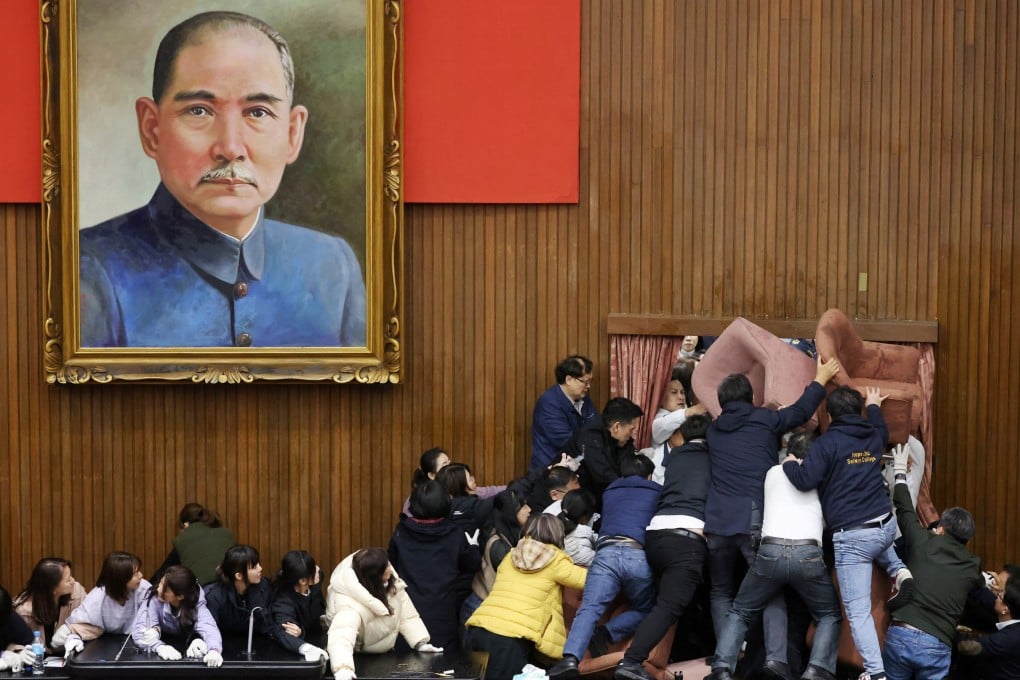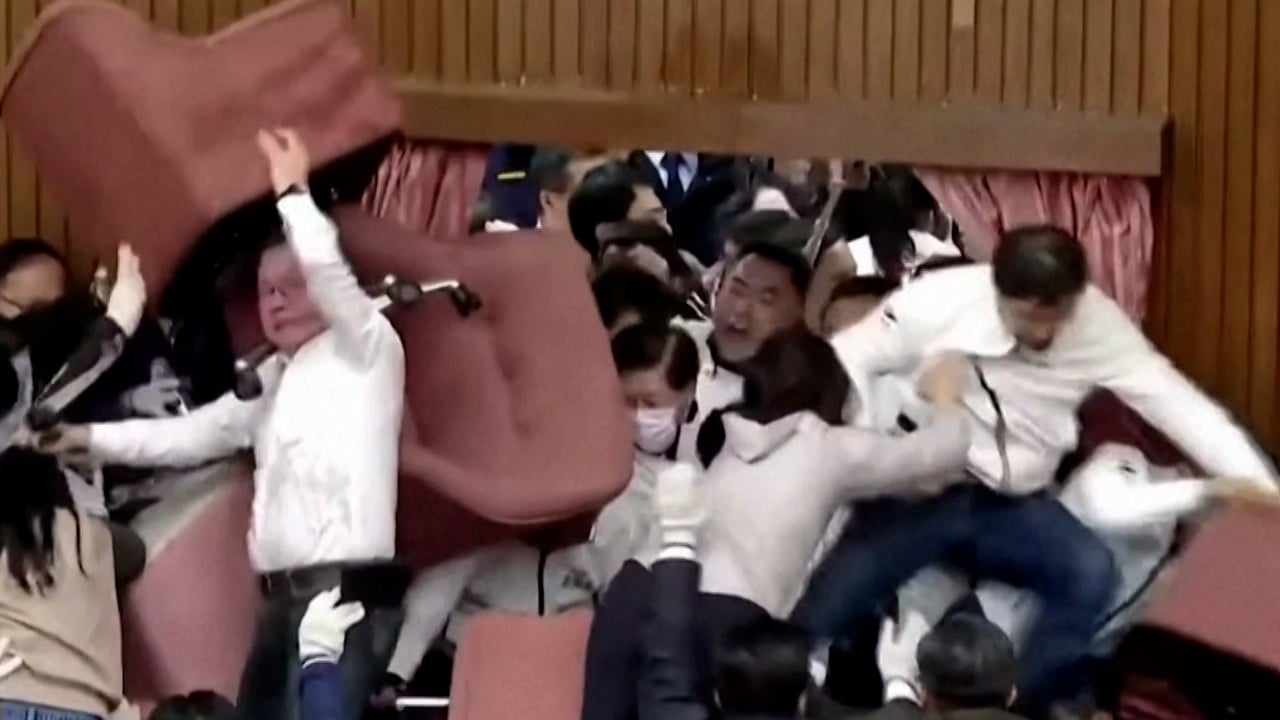Advertisement
Opinion | Taiwan’s latest legislative punch-ups suggest democracy is in retreat
While scuffles in the legislature are practically a tradition going back decades, this year’s clashes have been more violent and disruptive
Reading Time:3 minutes
Why you can trust SCMP
4

While South Korea’s impeached President Yoon Suk-yeol has attracted notoriety for his stunning failed bid to impose martial law, there is another democracy in the region where the ruling party has been behaving with audacity.
Advertisement
On December 20, Taiwan’s legislature became the scene of intense clashes between the ruling and opposition legislators, involving wrestling, kicking and the throwing of water. Legislators from the ruling Democratic Progressive Party (DPP) had broken into the building overnight and barricaded the doors with furniture to prevent the opposition from entering.
Meanwhile, protesters supporting the DPP tried to storm the building. As farcical as it all was, the scuffle is a worrying sign that Taiwan’s democracy may be backsliding.
While punch-ups in the legislature are practically a tradition going back decades, this year’s clashes – including those in May, July and one other time this month – have been significantly more violent and disruptive. And, unusually, they were almost always provoked by action taken by the ruling political party. That the ruling party is resorting to antics normally reserved for the opposition is both ironic and worrying.
The ruling DPP is doing this because it has been reduced to a legislative minority against the opposition coalition of the Kuomintang (KMT) and Taiwan People’s Party (TPP). As such, the DPP is unable to get its way in the legislature or prevent the opposition coalition, which holds the majority, from passing bills and amendments.
The May 17 scuffle in Taiwan’s Legislative Yuan occurred because the DPP wanted to prevent the opposition from passing a package of bills to widen the powers of the legislature, especially in its oversight of the president, among others, requiring the president to answer questions directly from legislators.
Advertisement

Advertisement

